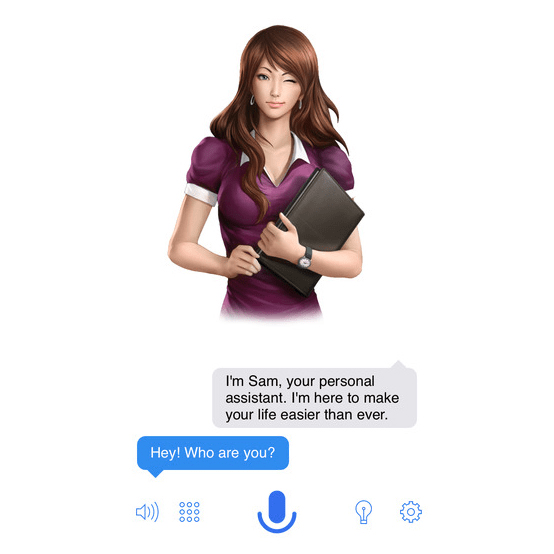AI might give you a personal assistant instead of taking your job

With the advent of artificial intelligence, assistants should no longer be a luxury confined to executives. We already have AI helpers in our personal lives, such as Apple’s Siri and Amazon’s Alexa, but now is the time to take this to the workplace.
Despite advancements in technology that promise to help us leave the office closer to 5pm, we’ve arguably never been busier—and more in need of some assistance. While hiring a human personal assistant for every staff member would be a logistical and financial nightmare, everyone could have their own personal AI assistant. With the ability to automate time-consuming tasks and focus more on revenue-raising work, the productivity benefits could significantly change how we operate and how businesses scale.
The trick though will be how to build an assistant that works for you rather than you working for it. There’s no one-size fits-all in the workplace, and any company that claims to have built an AI to complete multiple types of tasks will ultimately be useless at all of them. Instead, there are a lot of single-purpose products built to help people get through their work days: x.ai can schedule your meetings, Lucy can help you with market research, and Restless Bandit automates the candidate-screening process and even reaches out to qualified people for vacant positions.
But having so many different AIs assistants helping us with different tasks could become unwieldy. As these helpers become more commonplace, businesses need to think about not only how to breed these digital cattle, but herd them. Will we soon have to create an org chart for robots?
The products developed to assist with specific activities are indeed useful, but there’s potential to go a step further to deliver a truly personal AI assistant. The only effective way to deliver an a helper that truly assists is to have your own, configured to your role with unique abilities that are specific to how you operate.
No two human beings are the exactly the same, and neither are their jobs. The tasks and KPIs for a HR assistant are totally different from those of a sales representative, which are different again from a CMO’s to-do list. With the explosion of specific department and task-related enterprise software, employees at the same company usually interact with vastly different digital resources, information systems and workflows from each other. The HR assistant might work with HRIS systems, while the sales rep most likely deals with a CRM. Meanwhile, the marketing department might’ve gotten frustrated with sharing collateral through Dropbox or Google Drive and now uses a totally different cloud-based storage account that no one else in the business knows about or can access.
Instead of focusing on task-oriented assistants, we should work toward building an individual AI helper that caters to what you need and how it can help in a broader context it would learn from your actions in order to predict and personalize its responses. It would be connected to the programs and data you use and available on any device, pulling up sales data, telling you what you’ve got on today, prioritizing your emails, and answering common questions you receive.
This isn’t about pitting man vs. machine, but integrating effective and intelligent software that can eliminate mundane tasks that erode productivity, engagement, and performance. In this way, individual assistants can be the ultimate companion, increasing productivity, reducing errors, and allowing their human to work at a higher level by automating time-consuming work.
Article Source: https://qz.com/1135146/ai-might-give-you-a-personal-assistant-instead-of-taking-your-job/
Image Source: https://images.fastcompany.net/image/upload/w_596,c_limit,q_auto:best,f_auto,fl_lossy/fc/3059719-inline-i-4-handicapping-the-ai-assistants.jpg
VOCABULARY WORDS:
1. Vacant (adj.) ~ (of a position or office) not filled
2. Unwieldy (adv.) ~ difficult to carry or move because of its size, shape, or weight
3. Configure (v.) ~ shape or put together in a particular form or configuration
4. Cater (v.) ~ provide with what is needed or required
5. Integrate (v.) ~ combine (one thing) with another so that they become a whole
6. Mundane (adj.) ~ lacking interest or excitement dull
QUESTIONS FOR DISCUSSION: 1.
1. Have you tried using AI assistant like Siri and Alexa? How helpful are they?
2. Do you think that an AI office assistant would be helpful in improving office productivity? Discuss your answer.
3. How can an AI office assistant help workers have better work-life balance?